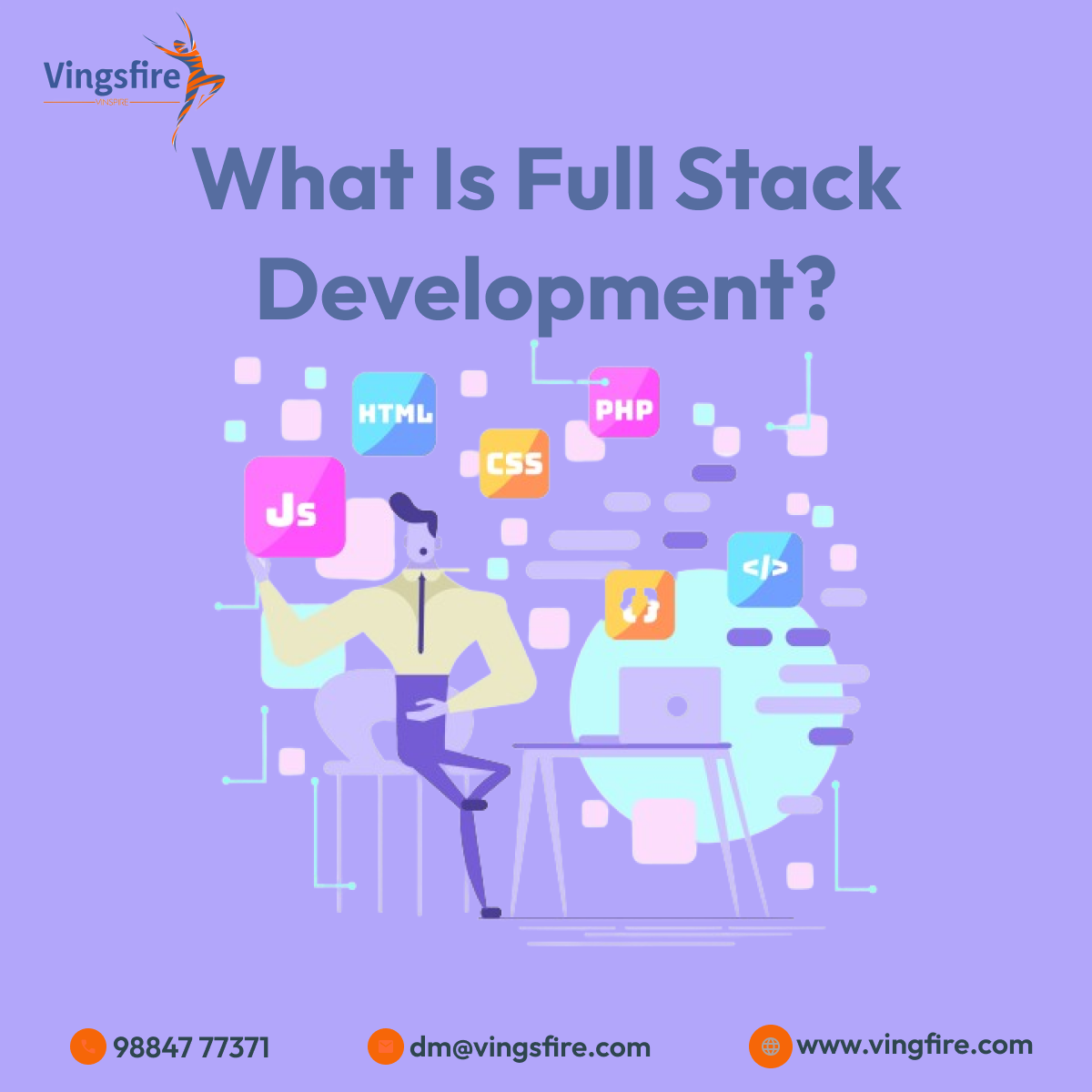Learn More:-
Defining FSD:
In the ever-evolving realm of technology, Full Stack Development has emerged as a crucial and dynamic skill set. As businesses strive to create seamless and feature-rich web applications, the demand for professionals adept in Full Stack Development continues to soar. In this comprehensive guide, we’ll delve into the intricacies of Full Stack Development, exploring its definition, key components, and the skills required to navigate this multifaceted field.
It refers to the practice of mastering both front-end and back-end technologies to create end-to-end solutions. In simpler terms, a Full Stack Developer possesses expertise in both the client-side (front end) and server-side (back end) aspects of web development. This versatility allows them to tackle a project from conception to completion, ensuring a seamless and efficient user experience.
Key Components:
Front-end Development:
The front end, or client-side, is what users interact with directly. Full Stack Developers proficient in front-end technologies utilize languages such as HTML, CSS, and JavaScript to craft visually appealing and user-friendly interfaces. They ensure that the website or application looks and functions seamlessly across various devices and browsers.
Back-end Development:
On the flip side, the back end, or server-side, is where the magic happens behind the scenes. Full Stack Developers working on the back end are responsible for server management, database integration, and handling server-side logic. Common back-end languages include Python, Ruby, Java, and Node.js, while databases like MySQL, MongoDB, and PostgreSQL are frequently employed.
Database Management:
Effective Full Stack Development involves understanding and implementing database management systems. Developers must be adept at designing, implementing, and maintaining databases to ensure efficient data storage and retrieval. A solid grasp of SQL or NoSQL databases is essential for seamless integration with the back-end architecture.
Version Control Systems:
Full Stack Developers rely on version control systems, such as Git, to track changes in their codebase, collaborate with team members, and roll back to previous versions if necessary. Proficiency in version control is crucial for maintaining code integrity and facilitating collaboration in a development team.
Server Management and Deployment:
Deploying a web application involves configuring servers, ensuring scalability, and optimizing performance. Full Stack Developers need to be well-versed in server management and deployment strategies to ensure their applications run smoothly in real-world scenarios.
Skills Required:
Proficiency in Multiple Languages:
FSD must be adept in both front-end and back-end programming languages. Common languages include HTML, CSS, JavaScript, Python, Ruby, Java, and others, depending on the project requirements.
Problem-Solving Skills:
Given the diverse challenges that arise during development, FSD need strong problem-solving skills. The ability to troubleshoot issues on both the client and server sides is crucial for delivering robust and functional applications.
Adaptability:
The technology landscape evolves rapidly, and Full Stack Developers must stay adaptable. Keeping abreast of emerging technologies and frameworks ensures that developers can leverage the latest tools to enhance their projects.
Collaboration and Communication:
FSD often work in collaborative environments, necessitating effective communication and teamwork. Clear communication with team members, designers, and stakeholders is vital for successful project execution.
Conclusion:
In the fast-paced world of web development, Full Stack Development has become a cornerstone skill set. Mastering both front-end and back-end technologies empowers developers to create holistic solutions, driving innovation and efficiency. As businesses continue to seek versatile professionals capable of navigating the entire development stack, the role of Full Stack Developers remains pivotal in shaping the digital landscape. Embracing this multifaceted skill set opens up a world of opportunities for developers looking to make a significant impact in the dynamic field of technology.











